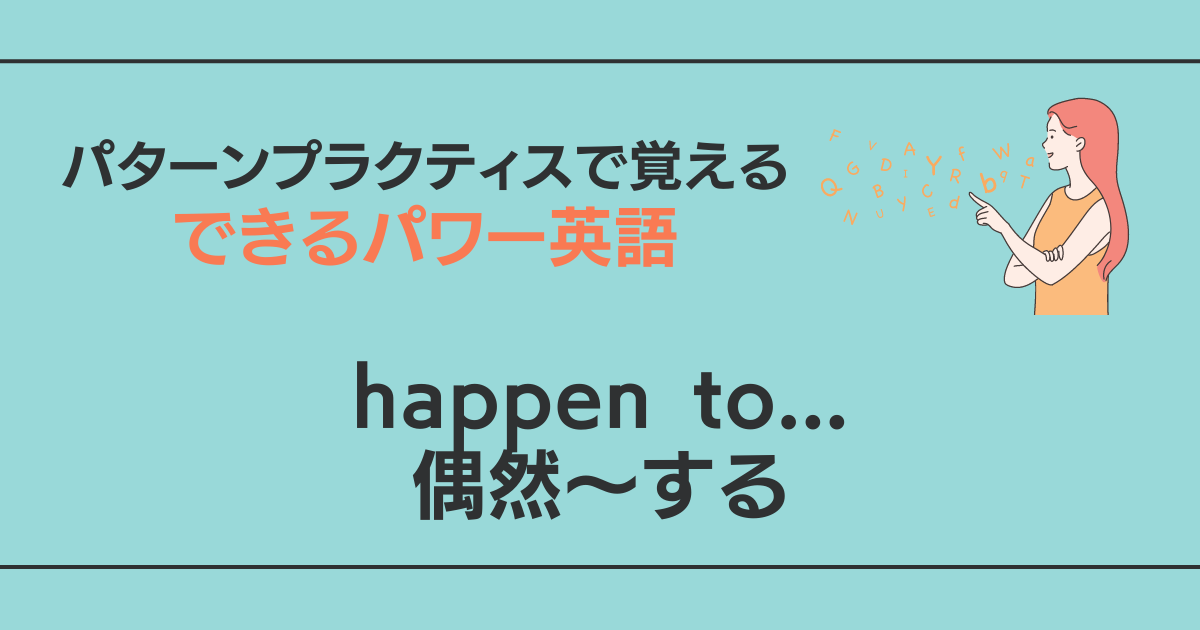「知っているはずの英語なのにとっさに頭に浮かばない!」という悩みを解決する「できるパワー英語」です。
1回、たった3分のトレーニングで確実に使いこなせるようになります。
今回はhappen to…「偶然~する」 の型です。
- happen to は偶然や予期せぬ出来事を表す表現で、「たまたま~する」「偶然~する」といった意味。
- happen toの後に続く動詞は原形になる。
- 疑問文で使う場合、日本語のニュアンスとしては「(たまたま)~ということはありますか?」となる。
目次
happen to を使った基本例文
- I happen to know the answer to that question.
「その質問の答えをたまたま知っています」 - Do you happen to have a pen?
「(たまたま)ペンを持ってたりしますか?」 - She happened to see an old friend in the market.
「彼女は市場で偶然古い友人に出会いました」 - I don’t happen to have any cash on me right now.
「現在、私はたまたま現金を持っていません」 - He’ll happen to be in Tokyo next week.
「彼は来週、たまたま東京にいます」 - I happened to find your wallet under the sofa.
「ソファーの下であなたの財布を偶然見つけました」 - Do they happen to know about the surprise party?
「(たまたま)彼らはサプライズパーティーについて知ってたりしますか?」 - We didn’t happen to meet at the agreed place.
「約束の場所で偶然会うことはありませんでした」 - Will you happen to be available tomorrow?
「(たまたま)あなたは明日空いてたりしますか?」 - She didn’t happen to see the sign.
「彼女はその看板を偶然見ることはありませんでした」
ミニ会話例
A: Do you happen to know where the nearest station is?
「最寄りの駅がどこにあるか、(たまたま)知ってたりしますか?」
B: Yes, it’s just around the corner.
「はい、すぐ角を曲がったところにありますよ」
今回の重要語句
- have cash on me:「現金を持っている」
- be in Tokyo:「東京にいる」
- meet at the agreed place:「約束の場所で会う」
- be available:「空いている」
類似表現
- come across:「偶然出会う」「偶然見つける」 例:I came across an old photo album while cleaning the attic.「屋根裏を掃除していたら、古い写真アルバムを見つけた」
- run into: 「偶然出会う」 例:I ran into my high school teacher at the mall.「ショッピングモールで高校時代の先生にばったり会った」
- by chance: 「偶然に」 例:Did you find this book by chance?「この本、偶然見つけたの?」
